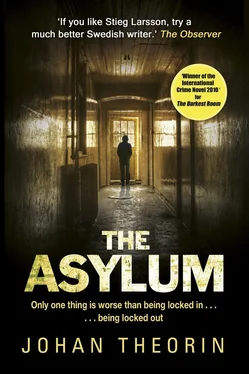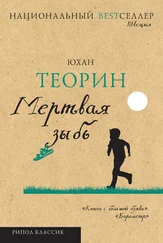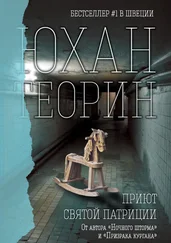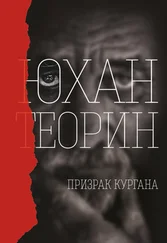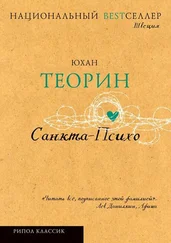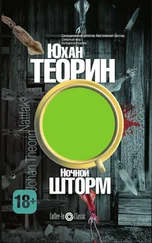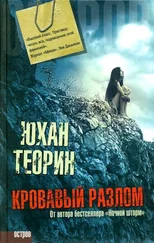The man is looking at you in amazement, as if you have performed some kind of trick by popping out of the sauna. ‘What were you doing in there?’ he asks .
You cough and take great gulps of air, but you do not answer him. Your throat is too dry. You simply crawl past your saviour across the tiled floor, past his white shoes, and slowly drag yourself to your feet .
You appear to be alive .
You stagger over to the washbasin by the entrance and turn the cold-water tap with a shaking hand. Then you drink, and drink and drink. Five deep gulps, six, seven. In the end your stomach starts to hurt; the water is too cold .
‘ Did someone shut you in?’ The tennis player isn’t prepared to give up. He is waiting for an answer. Explanations .
But you shake your head and totter out of the shower room .
At last you are free. You are so cold you are shaking now, but you have no intention of going back to stand under a hot shower. You just want to see if your clothes are still here .
They are. Your jeans, T-shirt, jumper and jacket are still there in one of the lockers — the gang didn’t take them. You pull on the thin cotton T-shirt first, then the woolly jumper .
Then you pick up your jeans. You will put them on in a minute and head out into the winter, but you want to find your watch first .
The tennis player has followed you into the changing room. ‘What’s your name? ’
You don’t answer that question either, but you look at him and ask in a hoarse voice, ‘What day is it today? ’
‘ Sunday,’ he says. ‘We’ve got a match shortly .’
You take out the watch. It is one thirty-five .
One thirty-five on Sunday afternoon .
Close your eyes and work it out. You have been locked in the sauna for almost two days — forty-six hours .
Lynx
Was it a happy ending for all concerned? Jan assumed so. William Halevi had been found, and his parents could relax after two days of torture.
The staff at the nursery were also feeling better. Everyone except Sigrid, who was still signed off sick a week after William’s disappearance. Jan heard that she was having some kind of counselling for post-traumatic stress.
And he was interviewed again by the police.
They didn’t actually come out with it in so many words, but they suspected something. The day after William had been found, two plain-clothes officers came to Jan’s apartment and looked around; he let them carry on. There was nothing to see. He had been back in the forest the previous evening, cleaned out the bunker, and thrown away or burned everything that had been inside it.
Two days later he was asked to go down to the police station. The interview was conducted by the inspector who had spoken to him earlier. She was no more cheerful on this occasion.
‘You were the last person to see the boy in the forest, Jan. And you were the one who found him.’
‘That’s not true,’ Jan said patiently. ‘That pensioner found him... I can’t remember his name now.’
‘Sven Axel Olsson,’ said the inspector.
‘That’s it... anyway, he was the one who was looking after William. And I just happened to see them.’
‘And before that?’
‘Sorry?’
‘Where do you think William had been before you and herr Olsson found him?’
‘I don’t know... I haven’t really thought about it. I suppose he was wandering around in the forest.’
The inspector looked at him. ‘William says he was locked up.’
‘Oh? In what kind of room?’
‘I didn’t say it was a room.’
‘No, but I assume...’
‘Have you any idea who could have locked him up?’
Jan shook his head. ‘Do you believe him?’
The police officer didn’t reply.
There was an unbearable silence in the interview room. Jan had to make a real effort not to break it and start babbling and speculating about various theories, which would be interpreted as some kind of confession.
But his mind was wandering and he had to say something, so he asked, ‘How’s Torgny doing now?’
‘Who?’ said the inspector. ‘Who’s Torgny?’
Jan stared at her. He had said the wrong name. ‘William, I mean William. How’s he doing? Is he back with his parents?’
The inspector nodded. ‘He’s fine. All things considered.’
In the end he was allowed to leave, but the inspector didn’t apologize. The only thing Jan got was one last long stare from her.
He didn’t care. William was back with his parents, safe and sound, and he himself was free. He could leave the police station and go wherever he wanted, but he walked out into the fresh air with a feeling of disappointment.
It had all gone so quickly. He had intended it to last longer — for forty-six hours.
Legén is drinking yellowish wine out of a cracked coffee mug. He pours a generous mug for Jan too; they are sitting among the mess at Legén’s kitchen table. ‘There you go.’
‘Thanks.’
Jan is thirsty, but not for lukewarm yellow wine. He takes the mug containing the liquid and wonders how he is going to empty it without his neighbour noticing.
Legén’s apartment is filthy and chaotic, but Jan actually enjoys these quiet sessions. He rang his neighbour’s doorbell after work because he wanted someone to talk to. But to what extent does he trust Legén? How much is he actually prepared to tell him?
‘I think there’s snow on the way,’ he says.
‘Yes,’ says Legén. ‘This is the time for chopping wood. We used to have a shed when I was little, but we kept all kinds of stuff in it, so there wasn’t any room for the wood. But you could sit inside the shed and have a bit of peace and quiet...’
The wine is making his neighbour quite talkative.
But eventually he runs out of steam, and Jan ventures, ‘I went down to the hospital cellar and had a look around on Sunday... I saw some of the patients.’
‘I’m not surprised,’ says Legén. ‘There’s always been a fair amount of activity down there.’ He takes a deep swig of his wine. ‘But I was never worried. We just got on with things in the laundry, for almost thirty years. The dirty laundry came down and we sent it back up... We found all kinds of things. Wallets, bottles of pills, all sorts.’
‘There’s a chapel in the basement,’ Jan says. ‘Did you know that?’
‘Yes, but we never went in there,’ Legén replies. ‘They kind of please themselves when the bosses have gone home.’
When Jan gets back to his apartment he tries to do some drawing; he wants to finish The Princess with a Hundred Hands . It is the last book without proper pictures, Rami’s fourth book.
He completes four drawings and colours three of them in, then he gives up. Instead he takes out his old diary.
He leafs through it slowly, reading his teenage thoughts and almost remembering how things used to be in those days — and when he reaches the middle of the book he finds an old item that he cut out of a local newspaper.
He remembers the cutting too. He came across it six years after the events at Lynx. It is a picture from the sports pages; there had been a junior football tournament, and the winning team was photographed after the final. A dozen boys are assembled for the camera, and in the middle stands the goalkeeper with the ball under his arm, smiling at Jan beneath his fringe.
William Halevi. His name is mentioned in the caption, but Jan recognized his face even before he read it.
He gazes at the picture for a long time. William looks happy, relaxed and unmarked by any bad memories from his time in the forest. He was eleven years old when the picture was taken, he played football, he seemed to have plenty of friends. His life would turn out well.
Читать дальше
